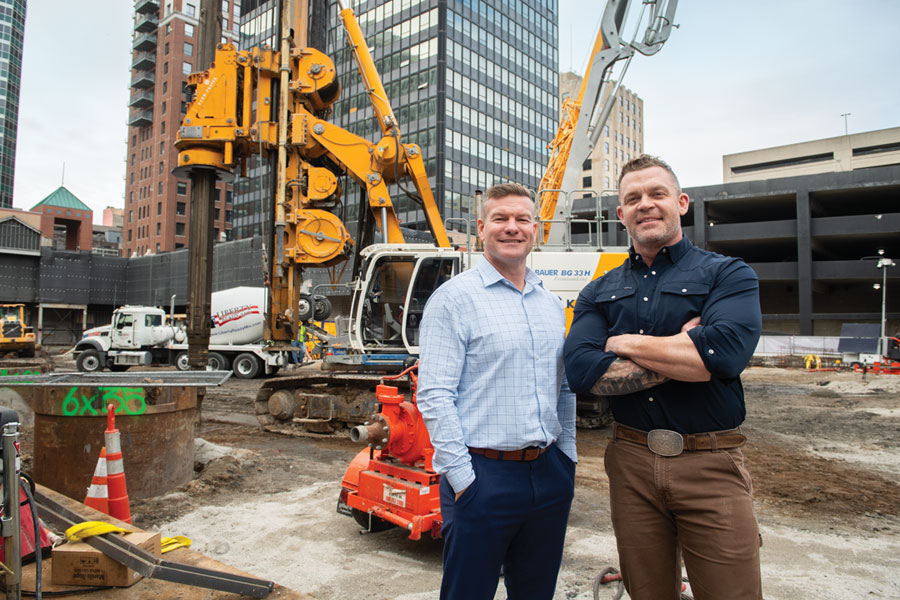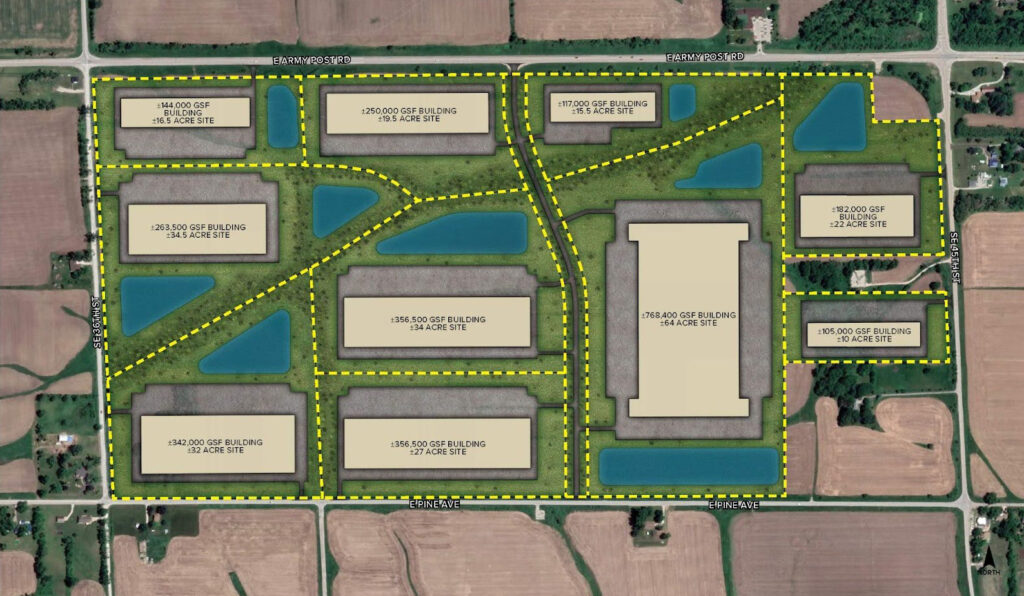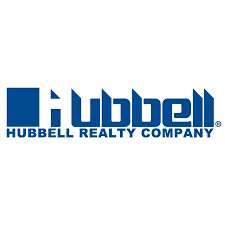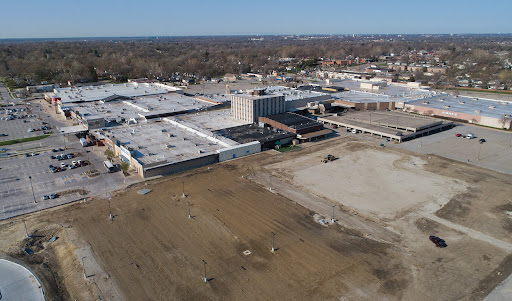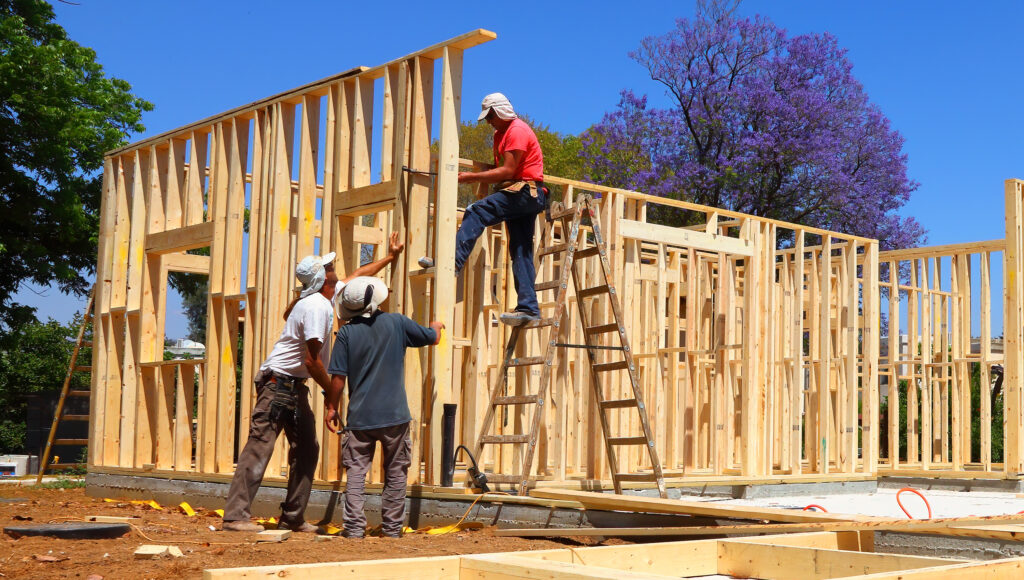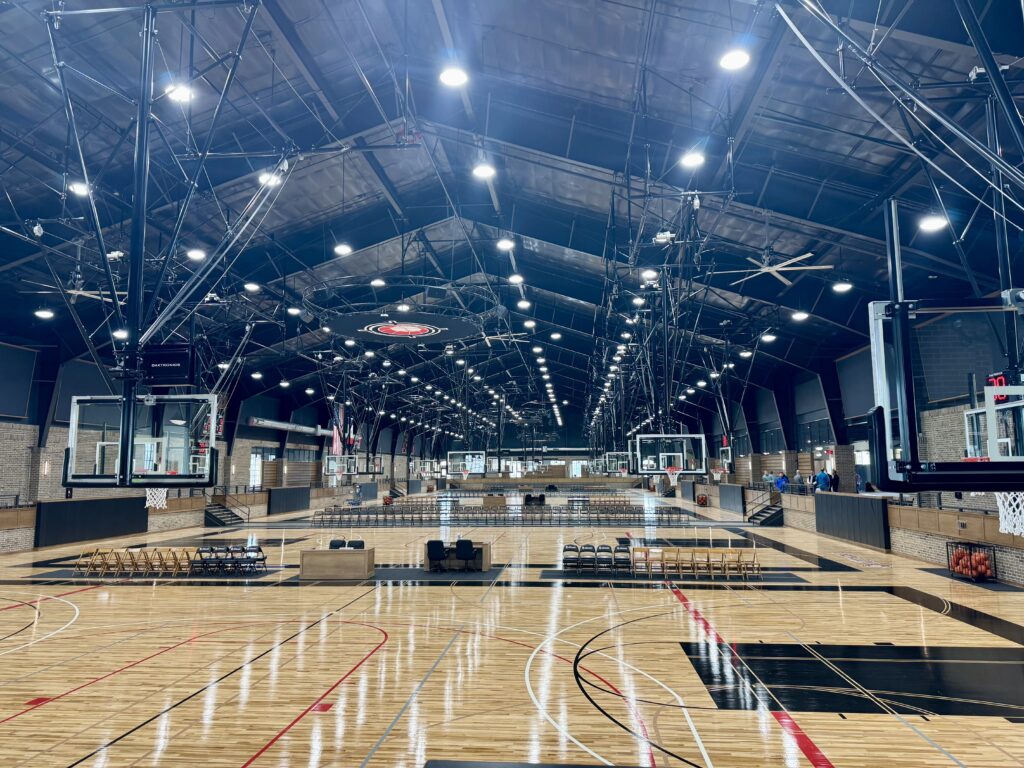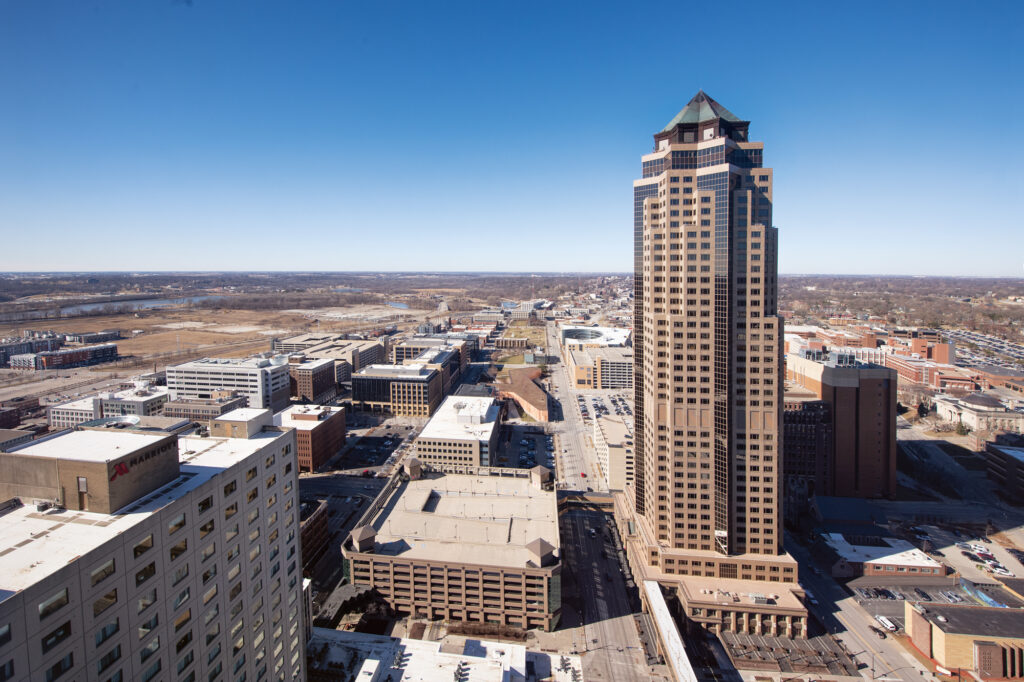Meet the owners of Beal Derkenne Construction, the company working on the 33-story 515 Walnut tower project
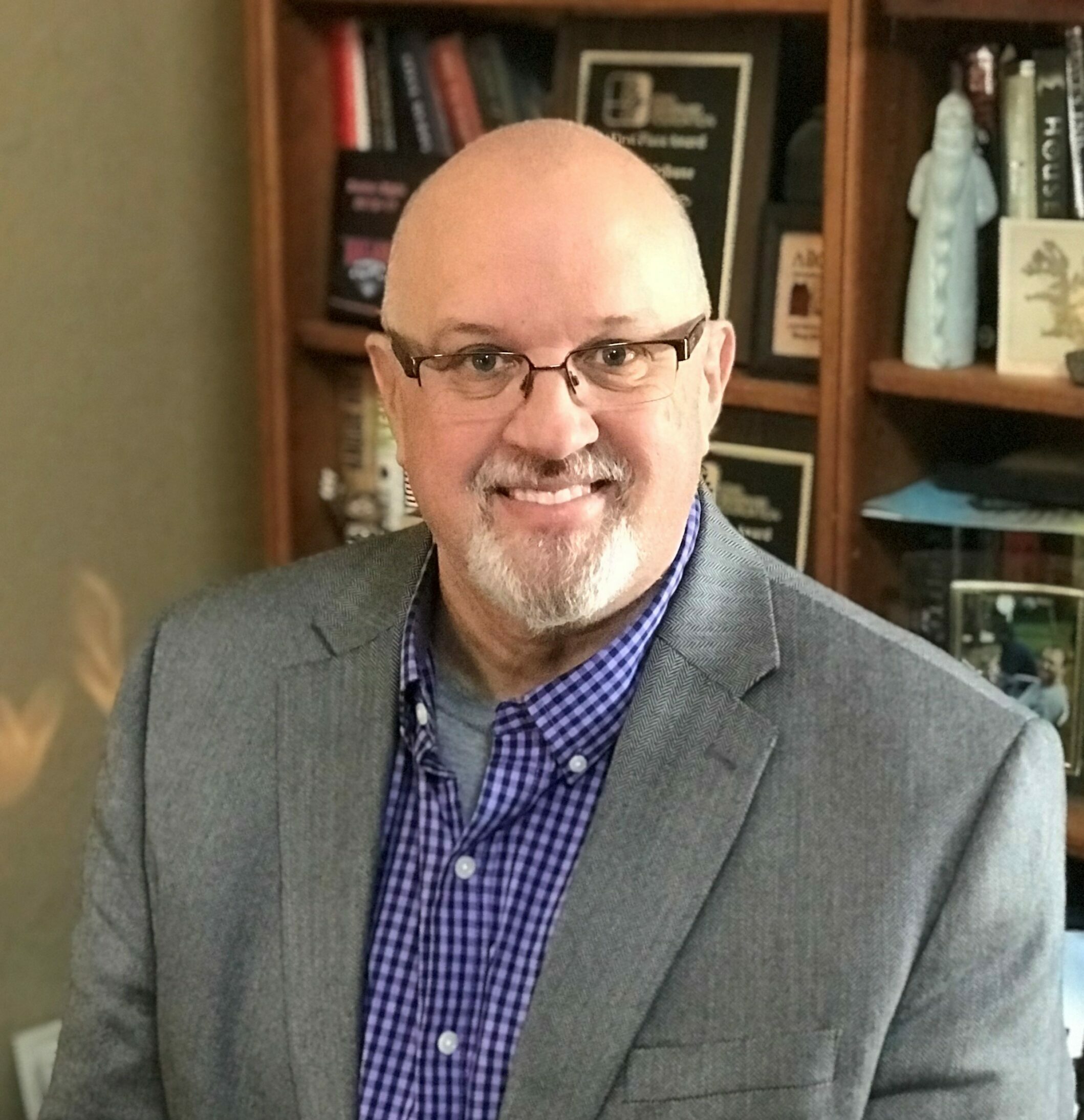
Andy Beal and Michael Derkenne grew up in Australia and met in 1998 while attending the University of Newcastle north of Sydney. Today, they are leading construction of the 33-story 515 Walnut tower in downtown Des Moines.
In Australia, they ran in the same circle of friends and played on the same rugby team together. They took different paths after graduating. Derkenne met his wife while studying at Iowa State University as part of a student exchange program, and moved to Iowa in 2001 and got married. Beal moved to Iowa in 2003 to work for a company in Des Moines. Their paths crossed again in 2007 when they started working together for a big general contractor in Arizona. They moved back to Des Moines when the recession hit and incorporated their company, Beal Derkenne Construction, in 2010.
Since then, they have built 11 high-rise towers, 10 in Arizona and a 15-story student housing project in Iowa City. The 515 Walnut tower project underway in downtown Des Moines is their tallest project yet, the previous tallest being 24 stories.
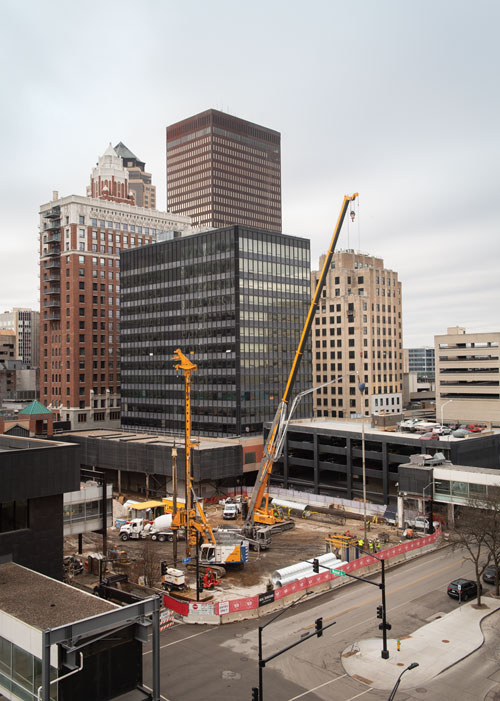
BD Construction has also been involved in a number of other projects in the metro and describes itself as a general boutique contractor. It remodeled the former fire station into what was the Des Moines Social Club. It built the Raygun building and renovated the building where its office is located, which is also home to Molly’s Cupcakes in the East Village. It also built the WesleyLife Meals on Wheels building near Drake University, and it did a $60,000 window replacement project for a friend who owns the building at 300 E. Court Ave.
It also renovated the former Crescent Chevrolet building and Big Grove Brewery.
And then there’s the $148 million tower project where the Kaleidoscope at the Hub used to stand.
Beal and Derkenne have shifted their mission in recent years to refocus on the Des Moines market, and a company that once had more than 200 employees has scaled back to a team of about 20, but is looking to grow and add to its team.
The Business Record sat down with Beal and Derkenne recently to learn more about their philosophy on construction, the evolution of their company, and what inspires them each day.
Their responses have been lightly edited for brevity and clarity.
What was your vision for the company when you began in 2010?
Beal: I don’t know if we had a vision. I don’t know if we knew what our limit was. I think we were just excited to get out there and do it for ourselves and to show what we can do. Even for the first several years of the company, we would get asked repeatedly, “How big do you want to be? How many jobs can you take on? What do you want to do?” And our response was always, “We don’t know. We’re still figuring that out.” We just kept growing, growing and growing. Over 15 years we’ve definitely evolved that vision. We better understand our limitations and the lane we want to be in and I would say the tower is a great example of something we are very passionate about. We enjoy doing it. It’s a lot of work. It’s a lot of chaos. It’s fun and that’s what gets me out of bed each day.
Derkenne: A lot of people would look at the tower and be daunted by it. It is. It can be daunting. If you don’t want to show up every day and be ready to solve problems, it’s going to fail. But we thrive on it. We thrive on solving problems. When we started we took on everything and anything at one point in time. At one point, in 2015 and 2016, we thought we could do everything and anything and our clients became national clients and they wanted us to go everywhere. By the end of that wave of projects, we were like, “OK, this is a lot harder than what we thought.” We are a relationship-based contractor. All of our clients, we know them. We work with them to come up with a price and schedule that works for them. Same with our subcontractors. We learned that it’s not the same on the road. We really need to be working in our own backyard to be able to provide the product we want to be able to provide. So after about 2017, 2018 we were like, “OK, it’s Arizona and Iowa,” so we were just building in those two markets after that and we ramped up to more than 200 employees. We were performing all the work on our own. We had our own guys pouring concrete, setting forms and framing materials. We were doing everything for a while and then we thought, “Let’s get our quality back and make sure we’re really doing what we want to do.”
What lane do you see yourself in now as you mark the company’s 15th anniversary?
Beal: I think we’ve definitely had to refocus in the last probably two years to the Iowa market. We’re very passionate about Des Moines and we have young families that we need to support and it’s hard to sustain a good work-life balance when you’re on a plane and you’re traveling out of state continually. So we had a little bit of a shift back to Des Moines. This is a market that we’re passionate about. We definitely want to continue to grow this market.
Derkenne: I would say we’re a boutique, general boutique contractor. We’re not very cookie-cutter. We look for difficult, unique projects that take somebody who wants to solve a problem and has a unique skill set to do that. We were the general contractor that picked up the row house at the bottom of the state Capitol and moved it five blocks down Grand in the middle of the night. Not many people get to do things like that. We’ve just done a lot of kind of quirky, unique projects that I just love.
What makes you tick and keeps you motivated?
Beal: It’s the ability to have an impact and change the course and path of a job. We’ve built a lot of big jobs. I would never say we’ve climbed to the top of the mountain because there’s always the next mountain. But now what gets me up is to implement the last seven years of strategy and see it evolve day to day and to mentor the next wave of people who are coming through. We’re young guys, but we’ve done a lot of big work, so there’s a lot of knowledge and experience there. I love seeing it come together. I love to assemble teams and I love being able to problem-solve. We’re hands-on owners. We’re not fat-cat owners sitting in a corner office counting money; we’re actively involved in these jobs from preconstruction all the way through punch list and beyond. We’re the executives and we’re the ones doing the strategy. We’re also the ones doing the estimating and putting the schedules together. We’re the ones meeting with everyone. So we wear a lot of hats because we’re a small company.
Derkenne: I love seeing our clients. I love being a part of pulling everything together. I want to do something that no one has ever done before and they say, “We don’t know how to, can you help us with it?” Absolutely I can help you. And then you get to be at the open house, the opening ceremony and see that vision come to life.
Is there a project you’ve done that you see as being memorable that has a broader effect on the community?
Beal: The Meals on Wheels project became a little bit of a passion project. You’re part of something that is going to create wealth for the community and it’s giving back to the community, but we’re also really fortunate enough on that job to work for a really great client who had really good people who were really appreciative of the efforts we took to make sure they opened on time, to make sure we hit the budgets and make sure we got everything coordinated. There are a lot of moving parts and pieces in that building. That was a really rewarding project. They’re not all as memorable as that.
When did you first become interested in a career in construction?
Beal: I kind of fell into it midway through high school. I was doing advanced English, business studies, legal studies, woodshop, all the things that kind of led toward the construction management degree at the University of Newcastle. So they were almost prerequisites to that degree. Prior to that, I wanted to be an architect and I visited my sister in college and she introduced me to some architects and they had to do a lot of work. So I was like, “You know what? There may be an easier strategy here and I’m pretty good at these other things.” I don’t think I planned it that way. As you mature you try to figure out what your skill set is and where your passion is.
Derkenne: Mine was similar. Growing up as a boy you always see a crane or bulldozer and think cool, I want to drive a bulldozer and knock things down. I thought I wanted to get an engineering degree until I started doing physics in my sophomore year, failed physics and I realized I couldn’t qualify through the university without physics, so I was like, “OK, what’s under engineering?” In Australia they give you these university books and they have all the courses you can take and what all the prerequisites are you need to qualify. They’re like, “If you’re in humanities, you’re here. If you’re in the sciences, you’re over here.” I was in engineering but kind of in the back of the book I found a course called construction management and I thought that sounded interesting. I was in 10th grade, failing physics and realizing my engineering career is gone, but construction management, I’ve got a chance. I’m glad because frankly when I see what engineers do it doesn’t excite me at all. I feel like our approach is that we want to be at the center of the universe when it comes to a project. We want to touch everybody and every part of a project.
What have you learned about yourself throughout your careers?
Derkenne: I can do more than I thought I could do. I love working around like-minded people. I probably always knew that but didn’t realize how important that was. I love being around people who are competitive. I don’t want to get stagnant. There’s always room for growth and I want to keep growing.
Beal: I’ve developed tenacity and expanded my capacity as a manager. As a younger guy you see a lot of things that are done well and you see a lot of things that aren’t done well and you figure out how you would handle it and then you are kind of thrown into it. I think at a very early stage of my career I was thrown into the deep end and I had to back myself with the strategies I have learned, good and bad, and the last 20 years have been just tenacious in the execution of that. Our style isn’t for everyone. I think those who are open to being led and will work with us through that strategy prosper. But our strategy doesn’t necessarily rub everyone the right way. But at the same time I wouldn’t change a single thing. We’re very authentic to who we are. We stand on principle. We work hard and we lead from the front. I think there’s always more to be done and I think that’s the aspiration that we have is that good enough is never good enough. How far can we push? How far can we grow?
Describe your management style.
Beal: I’m firm but fair. There’s a lot of planning that goes into my management style. There’s a lot of rigidity to the way we execute. I want to lead from the front. I want to do all the planning, all the thinking and I want to engage the team. I want it to be a group solution and when we all buy into it, let’s go.
Derkenne: I want to think I’m a servant leader. I like serving people around me to bring them up. We are always in the trenches with our team. There’s nothing we expect from them that we haven’t already done or would be willing to do today.
What’s next for the company?
Derkenne: Just growth in the Iowa market. We are just in Iowa and we’re trying to grow that presence. We have been so active in other markets that we no longer want to be in. We want to be here. And we want to increase our footprint and increase what we’re doing here at home.
Beal: Part of that strategy is attracting clients who want a different solution. It’s bringing that knowledge to the industry that there are other solutions out there and we’d love to be part of it. I think hopefully bringing that strategy to Des Moines will potentially lead to another tower and open up opportunities for other developers who may be looking at similar buildings that maybe they haven’t been able to make them pencil.
Read more about the 515 Walnut tower project and the developer behind the vision.

Michael Crumb
Michael Crumb is a senior staff writer at Business Record. He covers real estate and development and transportation.

